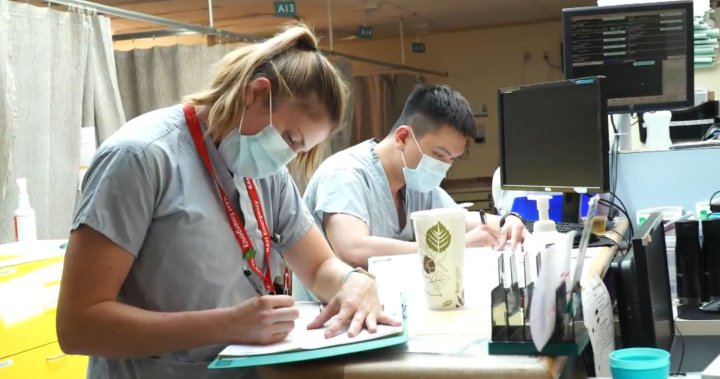Alberta’s decision to reverse course on COVID-19 vaccine requirements for healthcare workers has ignited a firestorm of controversy across the province. As someone who’s covered healthcare policy in Calgary for over a decade, I’ve rarely seen such immediate and forceful pushback from medical professionals.
The policy change, announced earlier this week by Alberta Health Services, effectively ends the vaccine mandate that has been in place since the height of the pandemic. Under the new guidelines, healthcare workers will no longer need to provide proof of COVID-19 vaccination as a condition of employment.
“This decision undermines evidence-based medical practice and puts vulnerable patients at unnecessary risk,” Dr. Melissa Chen, president of the Alberta Medical Association, told me during a phone interview yesterday. “Physicians across the province are deeply concerned about the potential consequences.”
At the heart of the controversy is the timing. Alberta is currently experiencing what epidemiologists describe as a “stealth wave” of COVID-19 cases, with positivity rates quietly climbing in several regions. According to Alberta Health data, hospitalizations have increased 17% in the past three weeks alone.
The United Nurses of Alberta, representing over 30,000 healthcare workers, didn’t mince words in their official statement. “This isn’t about personal choice – it’s about patient safety and workplace standards,” said Heather Smith, the union’s president. “Our members are on the frontlines dealing with immunocompromised patients daily.”
I spoke with several nurses at Foothills Medical Centre yesterday who shared similar concerns. Many requested anonymity, fearing professional repercussions, but their message was consistent: the policy change feels politically motivated rather than scientifically justified.
“We’ve already lost colleagues to burnout and stress,” one ICU nurse with 15 years of experience told me. “This feels like one more way the system is undermining our professional judgment and safety standards.”
The provincial government defends the move as part of a broader effort to align healthcare policies with current pandemic realities. Health Minister Jason Copping pointed to similar policy adjustments in other provinces during a press conference in Edmonton.
“We’re following the evolving science and balancing individual freedoms with public health responsibilities,” Copping said. “Healthcare workers maintain the right to personal medical decisions while adhering to strict infection prevention protocols.”
But medical experts question this rationale. Dr. Noel Gibney, professor emeritus at the University of Alberta’s Faculty of Medicine, expressed frustration over what he sees as political interference in healthcare policy.
“The scientific consensus remains clear – vaccination significantly reduces transmission risks in healthcare settings,” Gibney explained. “When we ignore this evidence, we’re playing politics with patient safety.”
The timing coincides with recent protests against vaccine mandates that have gained momentum across Alberta. Last weekend, I observed a rally outside Calgary City Hall where approximately 200 people gathered with signs demanding “medical freedom” and an end to vaccine requirements.
This represents the challenging intersection of public health, politics, and personal liberty that has defined much of Alberta’s pandemic response. While some celebrate the policy change as a victory for individual rights, others view it as a dangerous precedent that places political expediency above scientific guidance.
From my vantage point covering healthcare in this city, I’ve watched the toll the pandemic has taken on our medical professionals. The exhaustion is evident in their voices during interviews, their frustration palpable when discussing policy changes that seem disconnected from frontline realities.
A protest organized by healthcare workers is planned for next Tuesday outside the Alberta Legislature. Organizers expect hundreds of medical professionals to attend, many wearing scrubs and lab coats to emphasize their professional concerns.
The Alberta Union of Provincial Employees, representing thousands of healthcare support staff, has also joined the chorus of opposition. “Our members work alongside nurses and doctors to keep the healthcare system functioning,” said AUPE Vice-President Susan Slade. “This policy undermines collective efforts to maintain safe workplaces.”
For Calgary’s major hospitals already struggling with staffing shortages, the policy shift introduces new complexities. Hospital administrators must now navigate potentially divisive workplace dynamics while maintaining quality patient care.
As Alberta continues to chart its own course through evolving pandemic policies, the voices of healthcare workers remain crucial to understanding the real-world implications. Whether this particular controversy represents a brief flare-up or a fundamental shift in Alberta’s approach to healthcare policy remains to be seen.
What’s clear is that beneath the political debates and policy announcements are real people – both healthcare workers and the patients they serve – navigating an increasingly complex healthcare landscape in our province.







